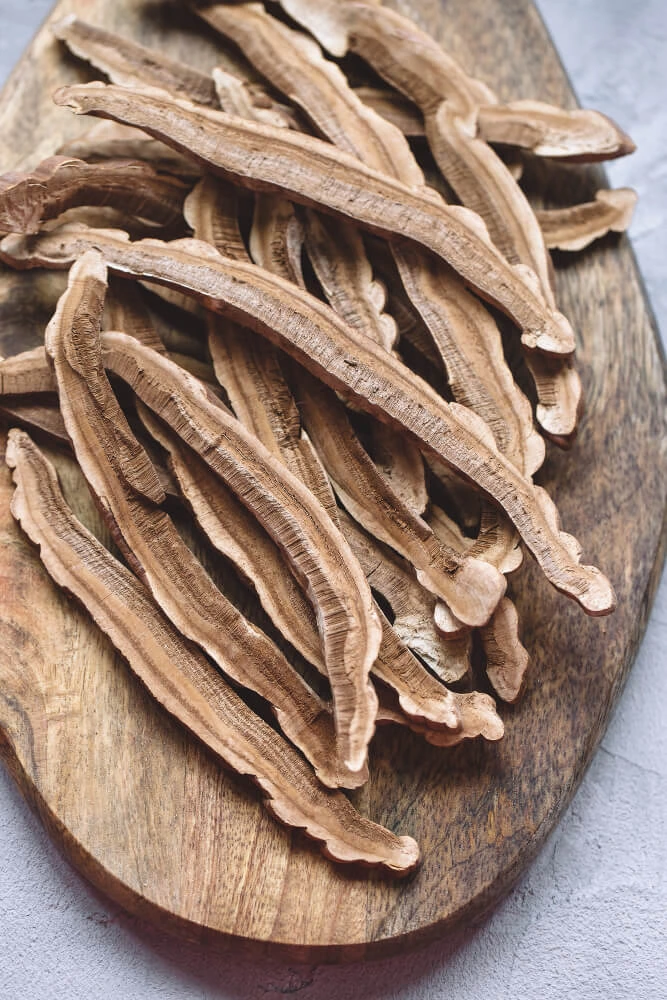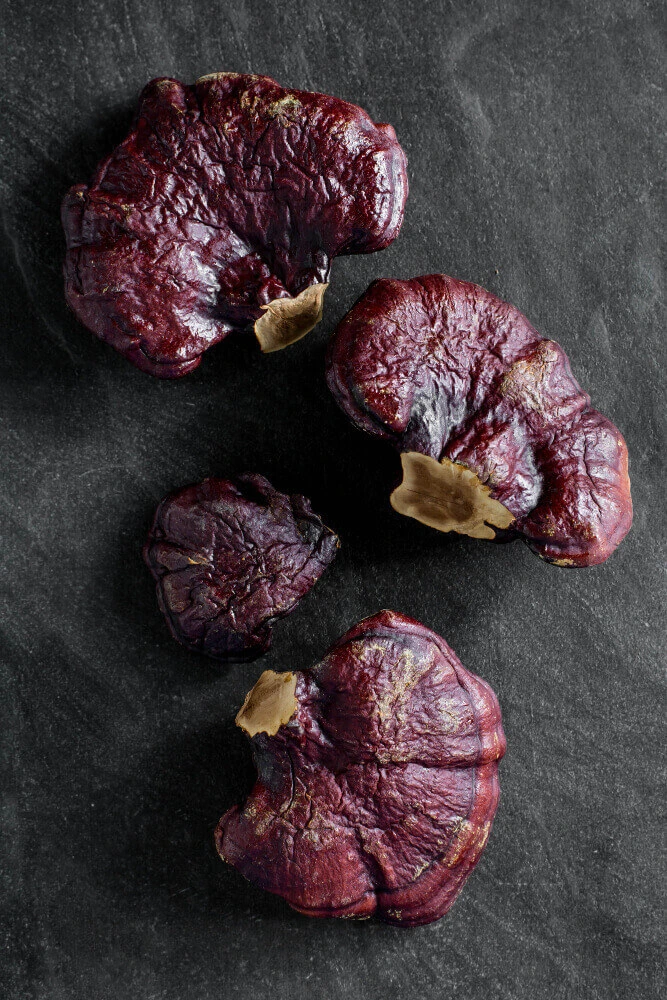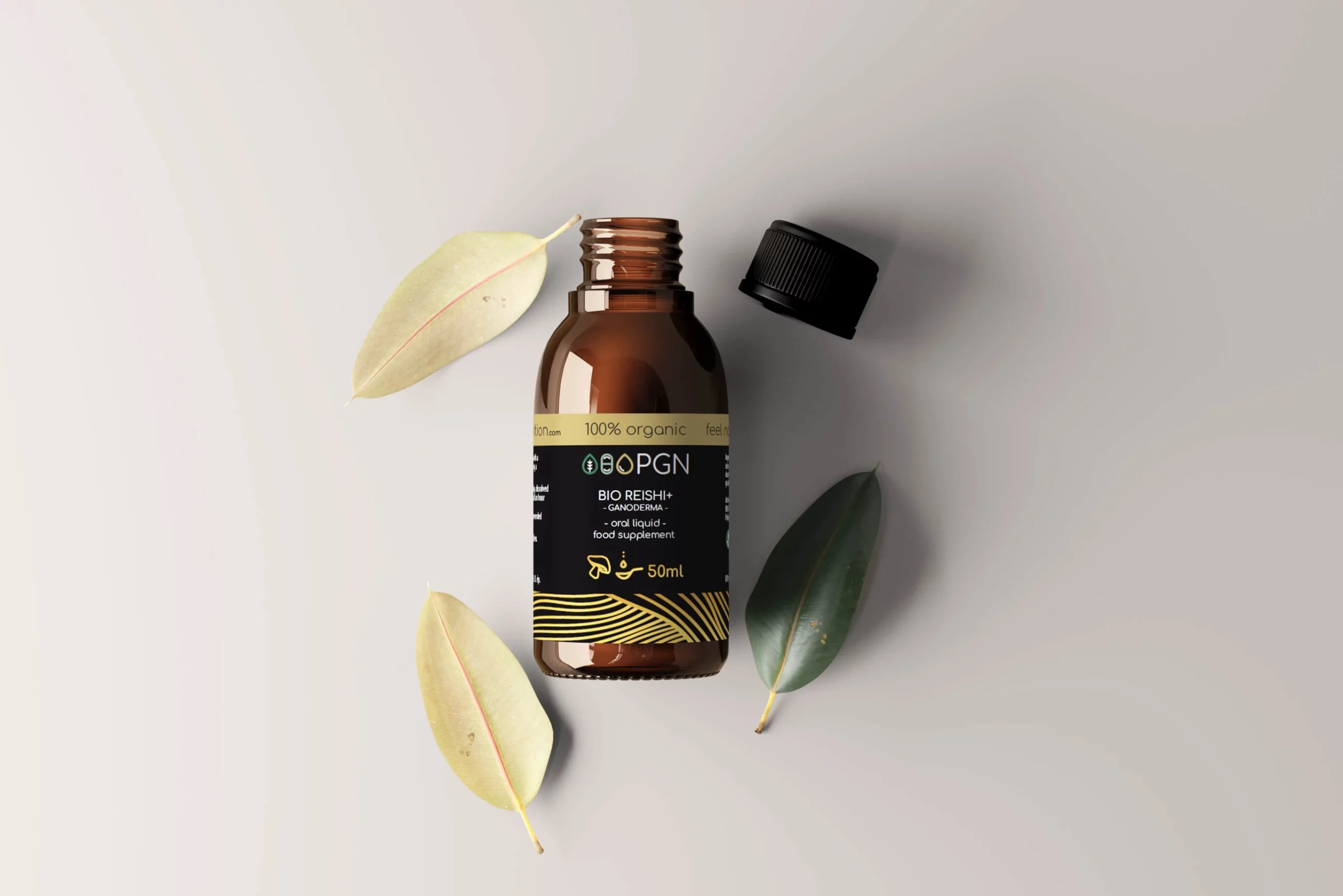The origin of Reishi
Ganoderma lucidum, commonly known as Reishi mushroom, is often referred to as “lingzhi,” which in Chinese means sacred or divine fungus. It has been used for more than 2,000 years in traditional Chinese medicine, where it is revered as the “mushroom of immortality.” Before people started cultivating and producing it, only the Chinese nobles had access to it. It became a staple for many people all over Asia as the years passed. Nowadays, Ganoderma fungus is still frequently used as a traditional medicine in Asia, and its popularity in western countries is rapidly rising.
Ganoderma, the mushroom of immortality
How did this special mushroom earn its name? Reishi has long been used to treat a variety of illnesses, such as heart disease, cancer, and bronchitis, as well as the Taoist quest for immortality. Recognising its amazing medicinal value, it is being utilized more frequently all around the world to promote general health and wellbeing.
Since 2015, over 279 bioactive chemicals have been identified in the Ganoderma mushroom. It contains immune-modulating polysaccharides and more than 130 triterpenoid chemicals (principally ganoderic and lucidenic acids), which have a wide range of beneficial effects on health, including anti-inflammatory, sedative, antihistamine, and anti-cancer properties. As a result, Ganoderma is often utilized to boost the cardiovascular and the immune system, to promote stress management and peaceful sleep, as well as to provide antioxidant support.

The main health benefits of Ganoderma

Immunostimulant and anti-cancer remedy
Despite great improvements in the early identification of tumours, cancer remains a significant clinical problem and a major cause of death in the world. With numerous reports of spontaneous remission, Reishi has a long history of use in the treatment of cancer. Triterpenoids and polysaccharides like beta-d-glucans are the two main immune-supporting components found in Reishi, contributing to its anti-cancer action. According to clinical research published in 2012, patients who received Ganoderma in addition to chemotherapy and radiation treatment responded more positively to the therapy than those without.
Healthy stress management and sleep support
Ganoderma is an adaptogen. The neurological, endocrine, and immunological systems are supported by adaptogens, which promote a healthier psychological response to stress. The fungus is also famous for its calming effects. It has long been used as a tool to help people meditate. It promotes tranquility throughout the day if taken in the morning and contributes to a restful night’s sleep if consumed in the evening.
Autoimmune diseases
Reishi is a helpful supplement for various inflammatory auto-immune conditions, such as rheumatoid arthritis, psoriasis, or ulcerative colitis due to its immunomodulatory and anti-inflammatory properties.
Cardiovascular health
As a traditional remedy for heart disease, Ganoderma has been shown to support cardiovascular health by lowering blood pressure and cholesterol and improving cellular energy in the heart muscle.
Allergies and respiratory health
Due to its anti-allergic qualities, Reishi is beneficial for allergic asthma, and Chinese studies also indicate that it can lessen altitude sickness. It has long been used to treat bronchitis in Eastern medicine.
Liver health
Ganoderma has long been a well-known traditional remedy for liver disorders because it has various hepatoprotective qualities, such as anti-inflammatory effects, protection from chemical toxicity, and normalization of liver enzymes.
Pure Gold Nutrition BIO REISHI mushroom extract
Would you like to experience the health benefits of Ganoderma? Try using PGN BIO REISHI extract! Our mushroom extract, produced using a unique manufacturing technology, contains 2g of dried mushrooms per daily dose (5 ml), which is the equivalent of 10g of fresh mushrooms. The indigestible part of the mushroom is removed during the manufacturing process, which allows the concentrated active ingredients to be better absorbed by the body.

Pure Gold Nutrition
Organic materials. 100% natural solutions. Zero compromises.

